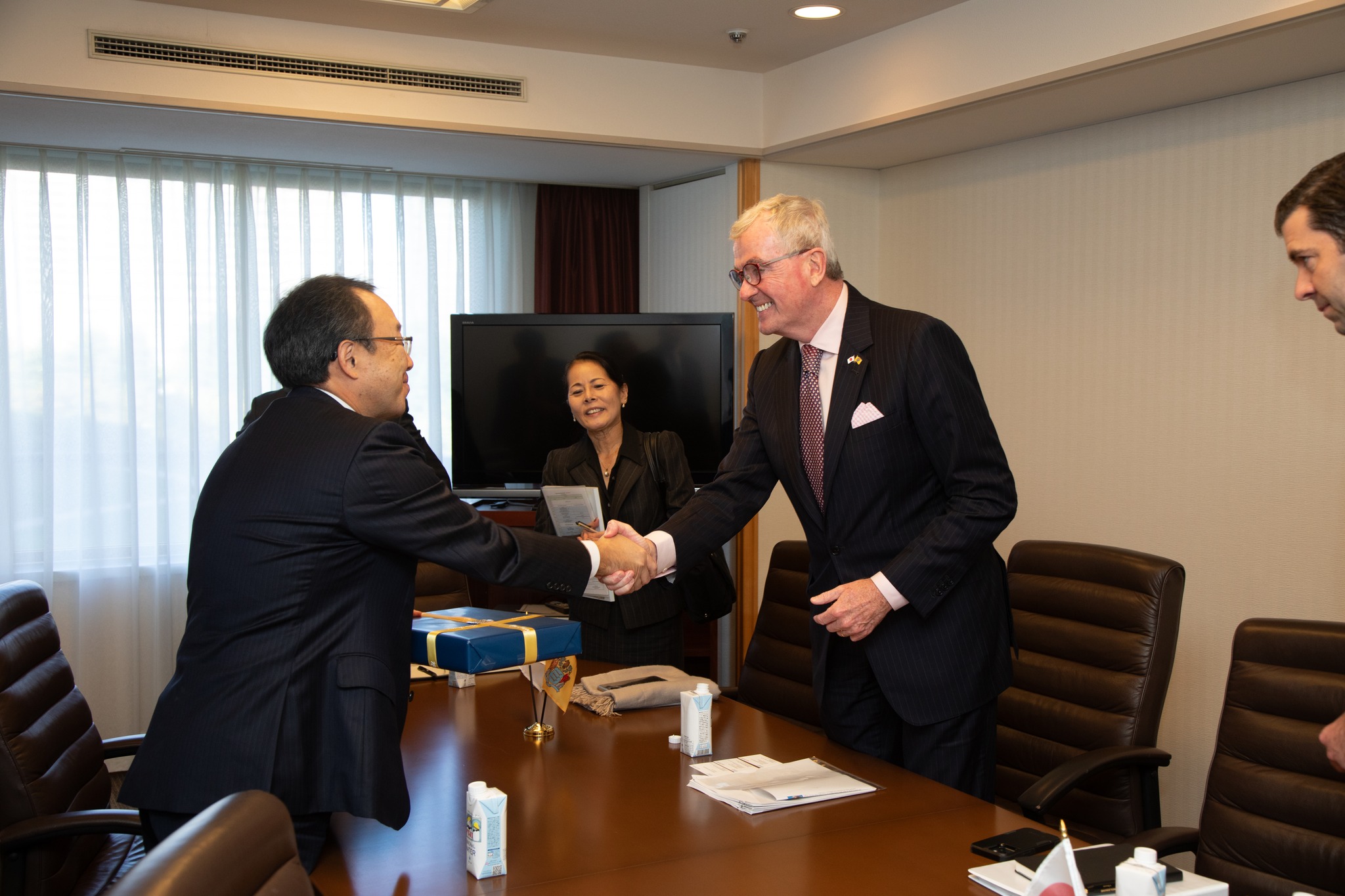TRENTON, NJ – New Jersey Governor Phil Murphy, a staunch civil rights advocate for illegal migrants is on a political mission in Japan. Murphy, who touts New Jersey as a sanctuary state for migrants who illegally entered the country is now in a country where illegal immigrants are treated like criminals, many being held indefinitely in detention centers.
The country was criticized by Amnesty International earlier this year over a proposed bill to strengthen the country’s anti-immigration laws.
Amid new legislative moves to increase detention powers for migrants, asylum seekers in Japan have criticized the country’s immigration system for its severe conditions and human rights violations. A report from Amnesty International supports these claims, highlighting instances of hunger strikes and suicide attempts among detainees.
Amnesty International interviewed over 30 migrants and asylum seekers, many of whom have been in detention for several years.
“Their testimonies make clear that Japan’s immigration detention system needs reform. However, the Japanese authorities are attempting to pass an amendment bill that will enable them to carry on detaining asylum seekers and other irregular migrants by default,” said Hideaki Nakagawa, Director of Amnesty International Japan.
The Japanese government is revisiting an amendment to its Immigration Control and Refugee Recognition Act, which would allow indefinite detention of irregular migrants, including those seeking asylum.
The bill’s reintroduction comes after a failed attempt last year, which was withdrawn following public outcry over the death of Ratnayake Liyanage Wishma Sandamali, a 33-year-old Sri Lankan asylum seeker. Sandamali died in immigration detention after being denied medical care, raising serious concerns about the system’s treatment of detainees.
The Amnesty report documents several human rights violations, including arbitrary and indefinite detention, physical abuse, and inadequate medical care. One Nepalese former detainee recounted: “Dozens of staff members came to the scene and after being beaten and slapped, I was taken to the isolation room. I had no memory afterward, and when I came to, about six hours had passed.”
Japan has the lowest refugee acceptance rate among G20 nations, accepting only 74 applications in 2021 out of more than 10,000 submissions. The new legislation, which could be passed during the current parliament session running until June, continues to face strong opposition for its potential to further undermine migrant rights.
Critics of the system argue that instead of addressing these urgent concerns, the Japanese government is moving in the opposite direction with this bill. The Amnesty International research, based on interviews and meetings with immigration officers and NGOs, adds significant weight to calls for comprehensive immigration system reform in Japan.
